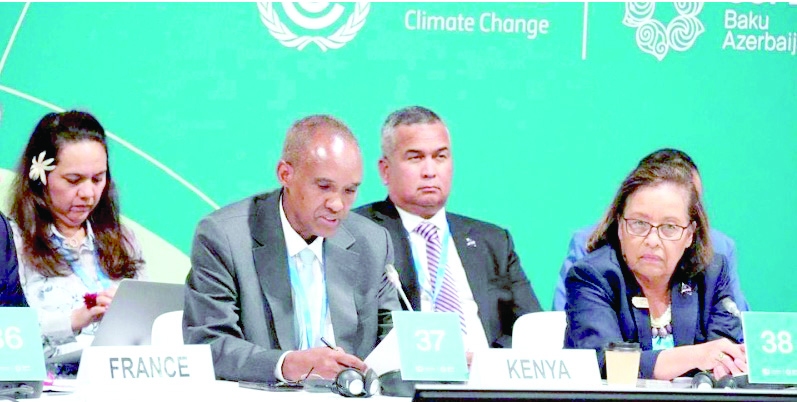Africa can thrive despite climate upsets

Africa is facing a momentous challenge in the global fight against climate change. As the continent grapples with the impacts of a changing climate, decisions made by influential global leaders can have a lasting effect.
One such decision is President Donald Trump’s withdrawal from the Paris Agreement, a significant setback in the global push for climate action. This move, which prioritizes short-term economic gains over long-term environmental sustainability, has sent ripples across the world, particularly in regions like Africa that are most vulnerable to climate disruptions.
However, despite the shifting tides in global politics, Africa remains endowed with an array of natural resources that could help the continent not only weather the storms of climate change but also take a leadership role in the global transition to a more sustainable future. With abundant natural resources, Africa has an opportunity to secure its own future, build resilience, and reduce its reliance on global powers for climate action.
One of Africa’s greatest assets is its abundant renewable energy resources. The continent is blessed with some of the highest levels of solar energy potential in the world. Africa’s sun shines bright and offers an abundant source of clean energy.The potential for solar energy alone is enough to power not only African households but also industries, communities, and even neighbouring countries.
The cost of solar technology has also dramatically decreased over the years, making it a viable option for Africa. By investing in large-scale solar farms, decentralised solar microgrids, and off-grid solar solutions, African countries can not only meet their energy needs but also reduce their carbon footprint. This approach could help alleviate the persistent issue of energy poverty that affects millions of Africans who still lack access to reliable electricity.
Furthermore, renewable energy can create thousands of jobs and stimulate economic growth by fostering a green energy sector in local economies.
Wind energy, too, holds enormous potential for Africa, especially in regions like the Horn of Africa and parts of Southern Africa. With strong wind corridors in places like Ethiopia, Kenya, and South Africa, the continent could significantly increase its wind power capacity, diversifying its energy mix and reducing its dependence on fossil fuels.
In addition to energy resources, Africa also boasts some of the world’s richest agricultural lands and vast ecosystems, which offer immense potential for sustainable food production.
Agriculture is the backbone of many African economies, employing a large portion of the population, particularly in rural areas. Though climate change threatens agricultural productivity, with increasing droughts, unpredictable rainfall, and rising temperatures, Africa has the opportunity to adopt climate-smart agricultural practices and tap into its natural farming heritage.
Climate-smart agriculture practices that increase productivity while minimising environmental impacts can help African farmers adapt to the changing climate. These practices include agroforestry, crop rotation, soil health improvement, and water management. By integrating these techniques into daily farming practices, Africa can safeguard food security and ensure the livelihoods of millions of smallholder farmers who are vulnerable to climate change.















